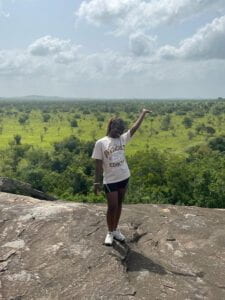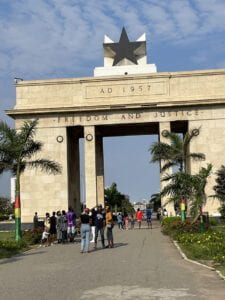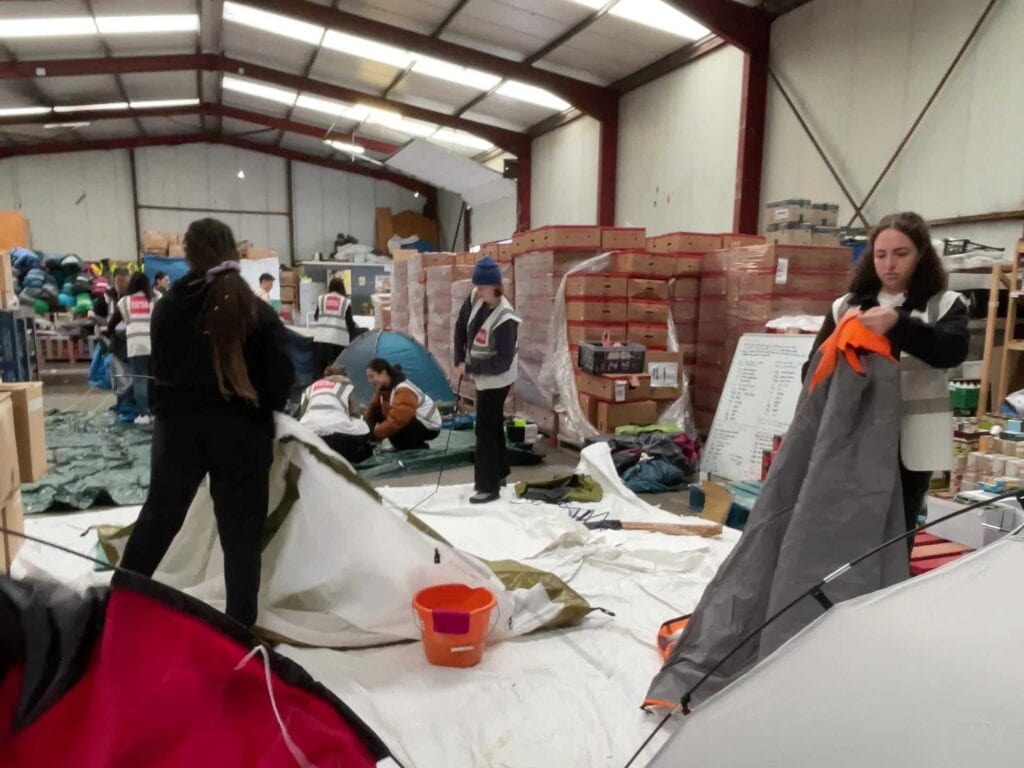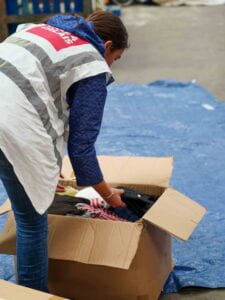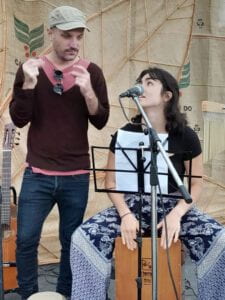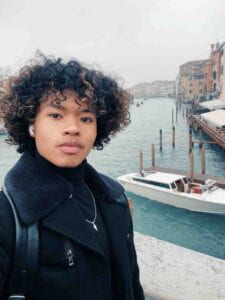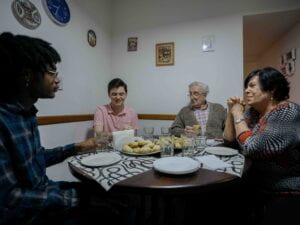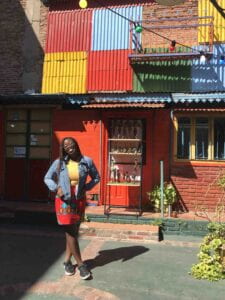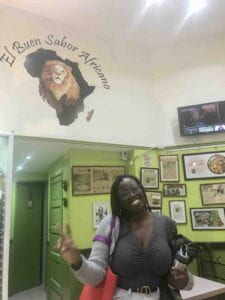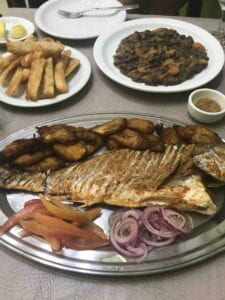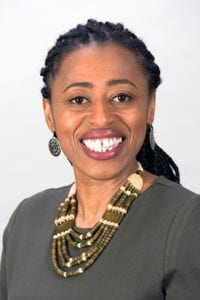Artists in residence enrich a university community by bringing new ideas and inspiring new questions, and that’s exactly what the inaugural artists in residence at NYU Abu Dhabi and NYU Shanghai did this past year in the sites’ programs.
NYU has long hosted artists in residence, but a global expansion allows the community to flourish in unexpected ways. “It’s understanding what people do, what their work involves, and then hopefully coming up with something together that we can explore that opens up both of our minds,” Sam Nester, the inaugural artist in residence at NYU Abu Dhabi, says. Nester, a trumpet player, composer, and sound artist who grew up in Australia, didn’t come in with a scientific background—but that was the point. As an artist he could learn from the scientists and vice versa. “The creative process is just like the scientific process,” he says. “There’s lots of learning and questions.”
During Nester’s residency, he worked with the Center for Genomics and Systems Biology to turn human genomes into sound, and partnered with scientists like Dr. John Burt, PhD, to place microphones in the Arabian Gulf—one of the warmest bodies of water in the world—to record the sounds of dying coral reefs onto plastic “vinyl” plucked from the ocean. “We’re tracking the changes of those sounds,” he says, explaining that “changes in acoustic properties might help us understand what happens with biodiversity with heat stress.”
Not only do artists in residence foster a sense of innovation and creativity on campus, but they work in various roles, and can also help students think outside the box. Lei, a Shanghai native, was NYU Shanghai’s inaugural artist in residence, along with Dennis de Bel, an artistic researcher, educator, and radio amateur.
 Lei taught for the first time during his residency, and while the University had originally proposed he complete a project by himself, Lei decided to slowly involve his students. He created a wall installation of wooden musical instruments that experimented with how we experience sound, and he let his students join in the performance when he exhibited them. He also curated exhibitions for his students to display their own work. “We need this kind of courage to do something new,” says Lei, who has a background in music, engineering, and the visual arts. “So I played that kind of role [to encourage students], but they also supported me because it was the first time I’ve taught.”
Lei taught for the first time during his residency, and while the University had originally proposed he complete a project by himself, Lei decided to slowly involve his students. He created a wall installation of wooden musical instruments that experimented with how we experience sound, and he let his students join in the performance when he exhibited them. He also curated exhibitions for his students to display their own work. “We need this kind of courage to do something new,” says Lei, who has a background in music, engineering, and the visual arts. “So I played that kind of role [to encourage students], but they also supported me because it was the first time I’ve taught.”

The NYU Shanghai community got to engage with Lei’s wooden musical instruments at the final exhibition.
Lei says ultimately, the final project was less important than the relationships he cultivated with his colleagues, students, and the Shanghai community—especially everyone who came out for the final exhibition. “We shared that moment together, and I think that was the most beautiful part,” he says. Nester echoes those sentiments. “One of the things that was very special about this residency…is that I’ve also made some really wonderful friends and colleagues that I never would have had the opportunity to unless I was there,” Nester concludes. “I feel like part of my heart is left there as well, which is a beautiful and wonderful thing.”
Written by Marti Trgovich










